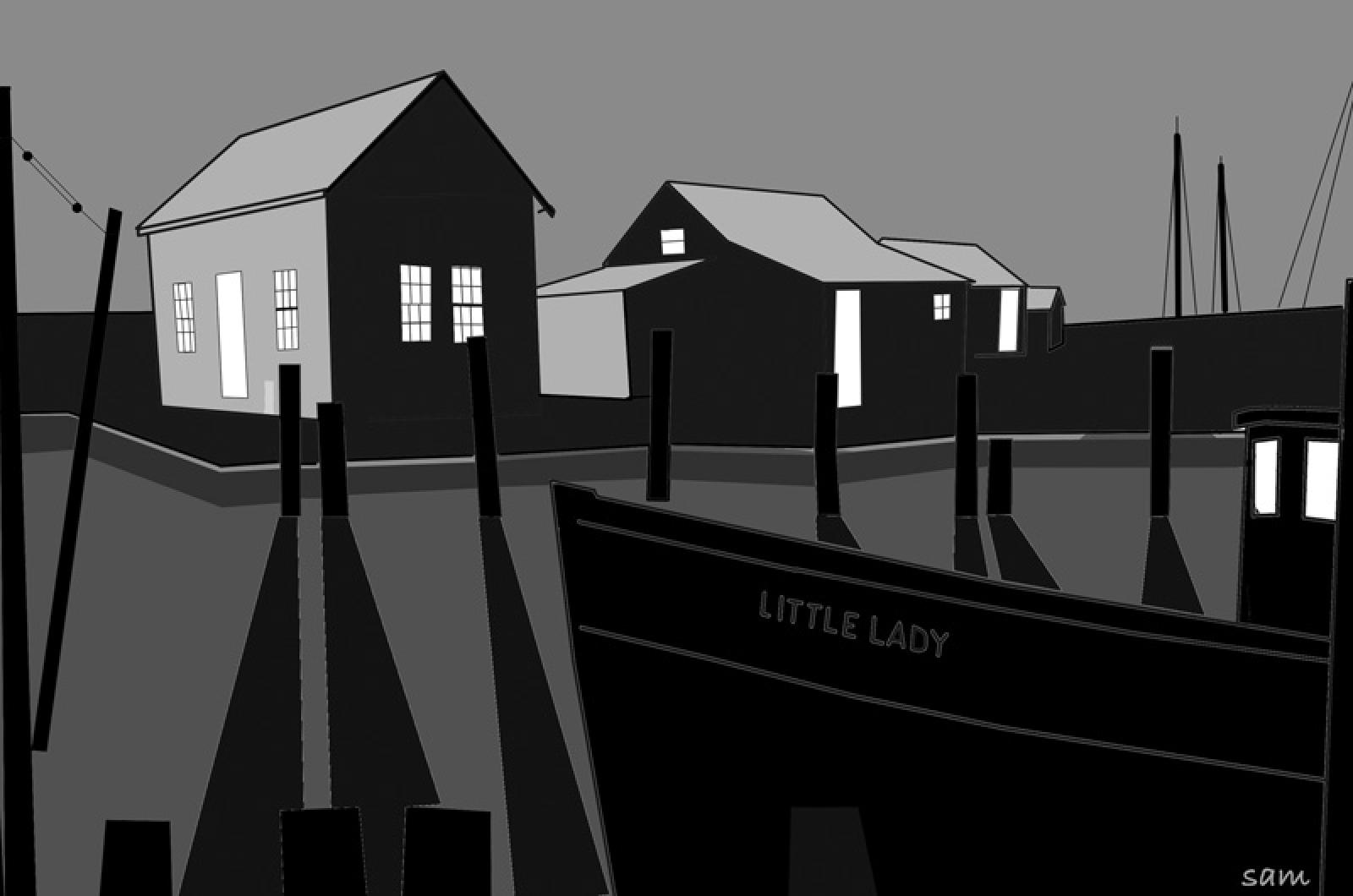The packed Chilmark Library meeting room last Friday attests to Menemsha residents’ love for their town as they gathered to discuss a new master plan. The Island is remarkable for the sense of community we share with each other as a whole and for those more intimate neighborhoods in which we spend most of our lives. As a young boy growing up in Menemsha, David Seward knew everyone and they all knew and cared for him. That knowing and caring is what defines a community.
“I was very fortunate to have been brought up in Menemsha,” David wrote on a Facebook page that I curate. “For a kid in the 50s it was a paradise. My twin brother and I had our own skiff, swimming every day, baseball games in the field next to the store and wonderful relationships with the fishermen around the crick. Our mother often told friends who wondered why we were allowed to run around Menemsha unsupervised that many of the fisherman kept an eye on us and never allowed us to get into any real trouble.
“Ernest Mayhew owned a shack on the road to the Coast Guard boathouse in Menemsha. He earned the nickname Horsepower when he was the first Menemsha fisherman to install a gasoline engine in his lobster boat. As children, my brother and I would visit Ernest every morning in the summer months and take turns lighting his pipe. He was a wonderful man.”
Anyone who visits Menemsha feels that sense of community right away. It’s a small, very small town, snuggled up to the harbor where the men and women of the Menemsha have earned their living from the sea for centuries. Today, the fishing fleet is small, but in the past there were dozens of fishing boats based there. David remembers what it was like as a boy:
“The Menemsha fishing fleet was very large . . . Sometimes the boats were rafted four or five deep on Dutcher Dock. The Larsen boys were probably the most successful sword-fisherman of that era around here. Their vessel Christine and Dan would often unload full complements of swordfish, some weighing between 300 and 400 pounds. They were excellent fisherman and worked very well together.”
The poet, author and farmer Wendell Berry wrote: “I walk this ground of which dead men and women I have loved are part, as they are part of me.”
An authentic community is often the result of living in one place all your life. In David’s case, it is 16 lifetimes.
“My family has a long history on the Vineyard [16 generations] in Chilmark and Menemsha in particular,” he wrote. “My grandfather owned a home on the land where the Coast Guard Station now sits, my uncle’s parents owned the Home Port Restaurant and my great grandfather owned the Wayside Camp at the head of the Basin Road. Family was always close by.
“My great, great-grandfather, Samuel Flanders was keeper of the Gay Head lighthouse in the mid 1850s. He witnessed the installation of the famed Fresnel lens in the newly built brick tower. He and his wife had 14 children. My great grandfather was the youngest of the bunch and was born in the lighthouse.
“Those 14 kids comprise a great many relatives on my mother’s side. My other great, great-grandfather Franklin Hammett Jr. was a whaler. He made his first voyage at the age of 15. In his third and final voyage he was the cooper which gave him a larger share of the profits. He bought land on Tea Lane in Chilmark and became a gentleman farmer. I have several of his whale bone carvings including a letter opener, fid and yarn shuttle. My brother has a cherry wood desk he built aboard the whale ship on one of his voyages.”
Sense of place, community, truly inhabiting the land you walk upon is deep and affirming and self-defining.
“If you don’t know where you are, you don’t know who you are,” Wendell Berry wrote.
The people of Menemsha know who and where they are. It is comforting to see them gathering to share ideas about what they want their community to be as they move forward into a brave old world.
Sam Low lives in Oak Bluffs.




Comments (1)
Comments
Comment policy »